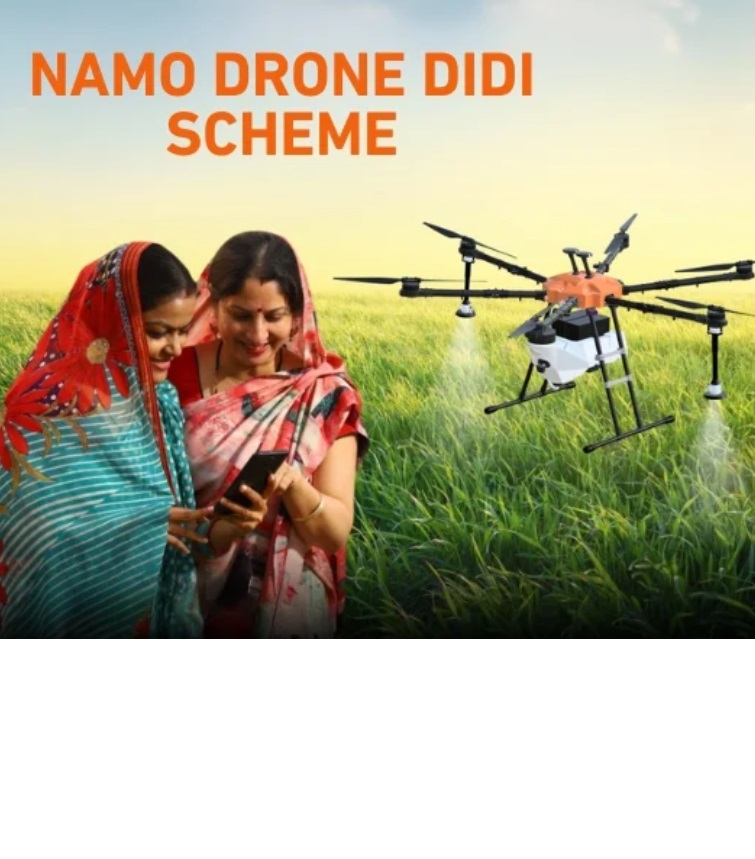The Government of India has launched the Namo Didi Drone Scheme, a Central Sector Scheme aimed at empowering Women Self Help Groups (SHGs) by providing drones to support agricultural operations. With a total outlay of ₹1261 Crores, the scheme will be implemented from 2023-24 to 2025-26. Under the scheme, 15,000 drones are targeted for distribution, with the first 500 drones procured and distributed by Lead Fertilizer Companies (LFCs) in 2023-24 using their internal resources. For the financial year 2024-25, 3090 SHGs have been identified to receive drones in the first phase.
The scheme operates through convergence among the Department of Agriculture & Farmers Welfare (DA&FW), Department of Rural Development (DoRD), Department of Fertilizers (DoF), Women SHGs promoted under DAY-NRLM, and LFCs. A State-level Committee, comprising members from various departments and institutions, oversees the implementation. Its responsibilities include selecting appropriate clusters for drone usage, identifying progressive SHGs under DAY-NRLM for drone allocation, organizing pilot and assistant training programs, assessing district-wise drone usage, and addressing gaps in drone deployment. The committee also ensures business opportunities for SHGs by coordinating with LFCs and pesticide companies.
Drones are provided as a comprehensive package, which includes mandatory pilot training and additional training on agricultural applications, such as spraying nutrients and pesticides. Provisions are also made for training other SHG members or their family members as drone assistants. Detailed operational guidelines for the scheme were issued by the Department of Agriculture & Farmers Welfare in October 2024.
The primary objective of the scheme is to provide business and livelihood support to Women SHGs. These drones are intended for rental services, enabling SHGs to assist farmers with liquid fertilizer and pesticide spraying. The scheme also promotes the use of Nano fertilizers through drones, with LFCs playing a key role in generating business opportunities for the SHGs. The State-level Committee ensures a seamless coordination between SHGs, LFCs, and pesticide companies to maximize the scheme’s impact.

